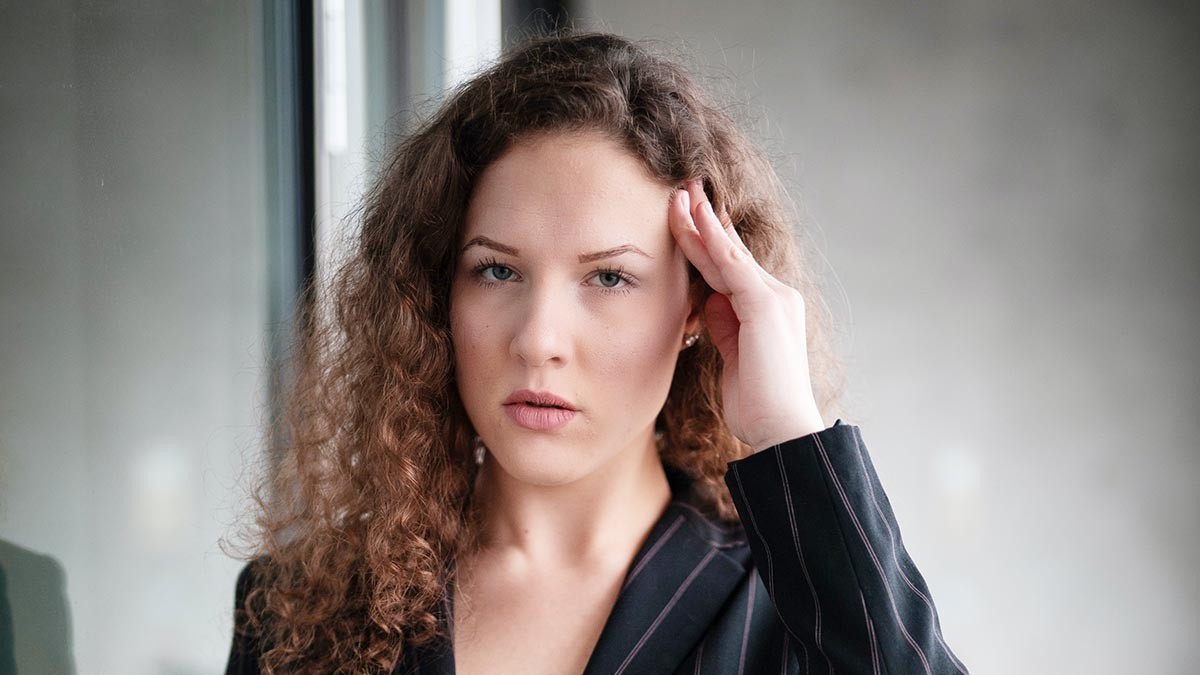How to treat Menstrual Headache
It's estimated that 70% of people who experience migraines are women. [2]
Several types of headaches are linked to changing levels of the hormones estrogen and progesterone. Women often get menstrual migraines anywhere from 2 days before their period to 3 days after it starts. But anything that changes these hormone levels can cause them. The degree to which those levels shift, not the change itself, determines how severe they are.
Hormones are often called your body's "chemical messengers." They're in your organs, tissues and bloodstream and they're made by the endocrine glands. Examples of endocrine glands include your thyroid gland, adrenal glands and pituitary gland. If you have too little of a certain hormone, or too much, that can throw your entire system off balance.
Estrogen and progesterone are the two main sex hormones in women. Estrogen causes female physical features, sets off puberty and aids with reproduction. It also affects your cholesterol, controls your menstrual cycle, protects bone health and affects your heart, skin, bones, brain and other tissues. It's mostly produced by your ovaries.
Your levels of estrogen change over time. They're at the highest amount in the middle of your cycle and the lowest amount when you're on your period. When you're in menopause, they drop very low.
Migraines associated with hormone levels are usually part of the pre-menstrual syndrome (PMS), a common condition in which women develop tiredness, irritability, breast tenderness and gain in weight from fluid retention in the few days before menstruation.
The Birth control pill can make migraines worse for some women and lessen them for others. Three weeks out of every month, they keep the hormones in your body steady. When you take placebo pills or no pills at all, during the week of your period, your estrogen levels plummet and your head can pound. If you're prone to hormonal migraines, taking birth control that contains low amounts of estrogen or only progestin may help. [1]
Some natural treatments may help or complement the medication, such as: [3]
Some supplements can also help lessen the effects of PMS:
[1] https://www.webmd.com/migraines-headaches/hormones-headaches
[2] https://my.clevelandclinic.org/health/diseases/8260-menstrual-migraines-hormone-headaches
[3] https://migraine.ie/2018/03/hormones-affect-migraine/
Hormones are often called your body's "chemical messengers." They're in your organs, tissues and bloodstream and they're made by the endocrine glands. Examples of endocrine glands include your thyroid gland, adrenal glands and pituitary gland. If you have too little of a certain hormone, or too much, that can throw your entire system off balance.
Estrogen and progesterone are the two main sex hormones in women. Estrogen causes female physical features, sets off puberty and aids with reproduction. It also affects your cholesterol, controls your menstrual cycle, protects bone health and affects your heart, skin, bones, brain and other tissues. It's mostly produced by your ovaries.
Your levels of estrogen change over time. They're at the highest amount in the middle of your cycle and the lowest amount when you're on your period. When you're in menopause, they drop very low.
Migraines associated with hormone levels are usually part of the pre-menstrual syndrome (PMS), a common condition in which women develop tiredness, irritability, breast tenderness and gain in weight from fluid retention in the few days before menstruation.
The Birth control pill can make migraines worse for some women and lessen them for others. Three weeks out of every month, they keep the hormones in your body steady. When you take placebo pills or no pills at all, during the week of your period, your estrogen levels plummet and your head can pound. If you're prone to hormonal migraines, taking birth control that contains low amounts of estrogen or only progestin may help. [1]
Some natural treatments may help or complement the medication, such as: [3]
- Sleep or Rest
- Yoga and Tai Chi
- Lifestyle management
- Acupuncture and Massage
- Drinking water
Some supplements can also help lessen the effects of PMS:
- Vitamin B6 – Mood enhancer
- Magnesium – helps with bloating and breast tenderness
- Evening Primrose Oil – helps with breast tenderness
[1] https://www.webmd.com/migraines-headaches/hormones-headaches
[2] https://my.clevelandclinic.org/health/diseases/8260-menstrual-migraines-hormone-headaches
[3] https://migraine.ie/2018/03/hormones-affect-migraine/

